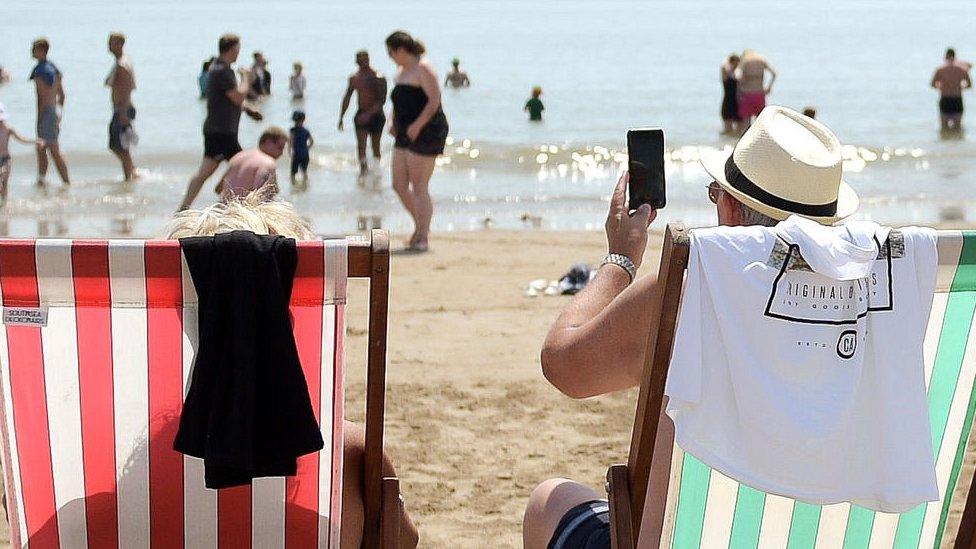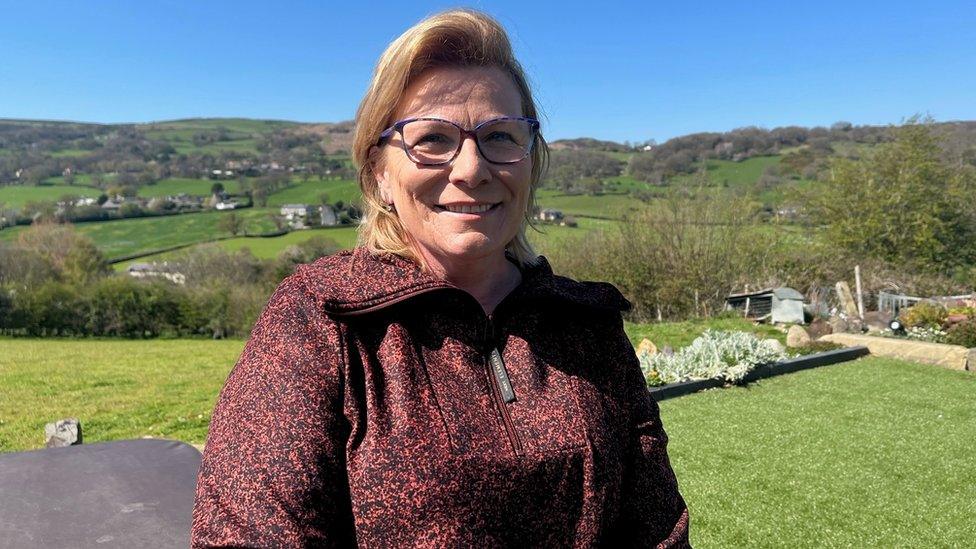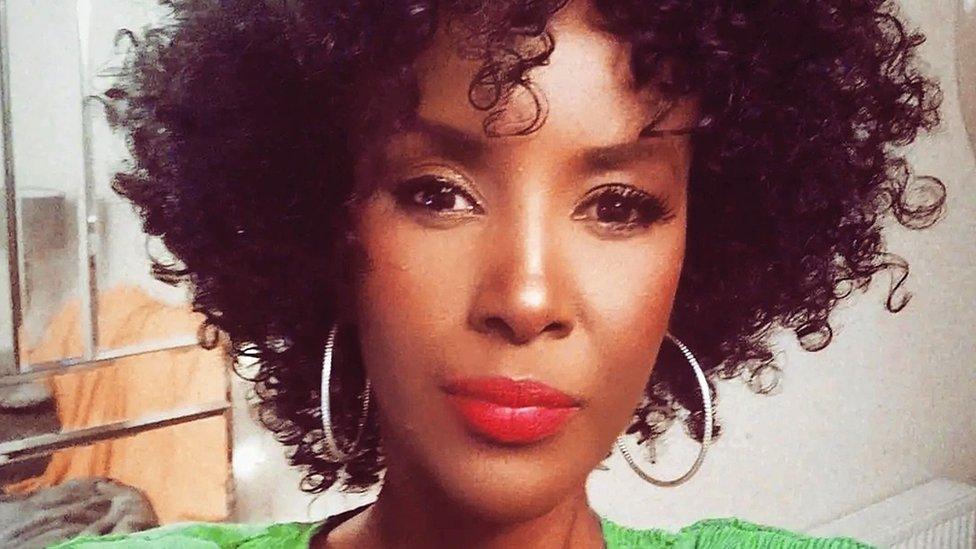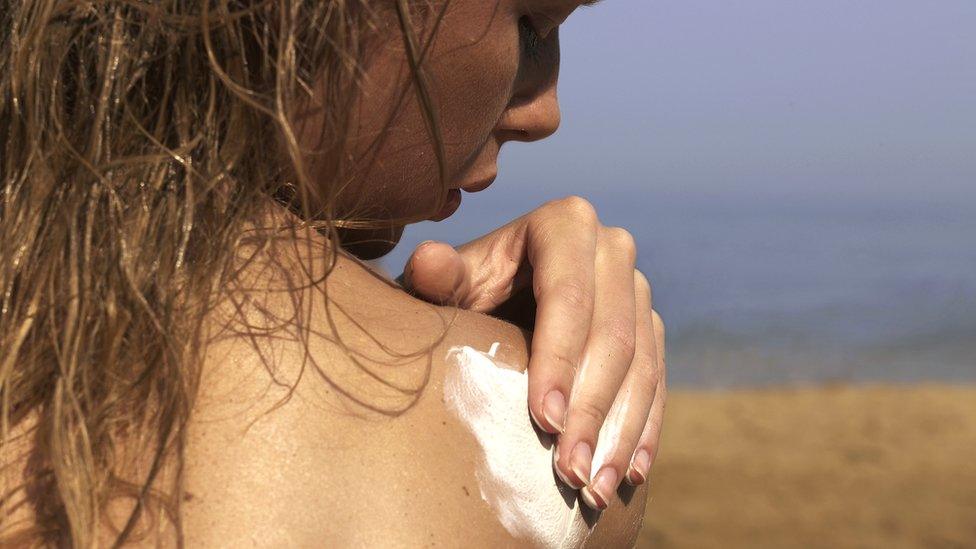Man treated for skin cancer says he was not aware enough of the dangers
- Published

Chris Maguire was treated for skin cancer after noticing a small spot under his hairline
An amateur cricketer who got skin cancer despite taking precautions has said he "probably wasn't aware enough" of the dangers - and is now urging others not to make the same mistakes.
Chris Maguire said the UK's "cloudy and rainy" weather can be deceptive.
He has now joined North West Cancer Research in urging people to wear sunscreen as summer temperatures begin to rocket.
"It could be the best decision you've made," the 51-year-old said.
Mr Maguire, from Lancashire, said he was diagnosed after noticing a spot "smaller than a grain of a rice" on top of his head in the shower last year.
"It would drop off and come back in the same place so my wife said I had better get it checked out," her said.
"I don't go out in the sun a great deal. I don't go on a sunbed. I tend to put suntan lotion on, I play a lot of cricket and always wore a cap - but it wasn't UV-protected. I probably wasn't aware enough."
He was diagnosed earlier this year and received treatment at Chorley Hospital.

The UV index in northern England has been the same as in the south of France
"Everyone's symptoms are different," he said. "But if you've got a persistent spot, then get it checked out because it could be the best decision you've made."
Mr Maguire also encouraged people to check any symptoms with a GP.
Alastair Richards, chief executive of North West Cancer Research, said: "We think it's because, as a region, we are used to it being cloudy and rainy.
"So when people see the sun, they come out, they want to enjoy it, but often they forget to wear the sunscreen they would put on if they were on holiday."
Sarah Allinson, a skin cancer specialist at Lancaster University, said: "For example, the UV index in Manchester at midday could be seven, which is high, and that is exactly the same as the UV index in Nice in the south of France as well.
"So if you in the south of France, you'll probably put some sun cream on. You might not if you were just coming into Manchester today."
Ms Allinson said: "We know that burning, particularly in childhood, is associated with increased risk of developing melanoma, which is the most harmful form of skin cancer.
"It's important to be aware of what your skin looks like normally so if you have a mole that starts to behave a little bit differently, gets a bit larger, changes colour, then get yourself down to your GP and get yourself checked out."
She added that "a fair-skinned, freckly person will have a higher chance of developing skin cancer than someone with perhaps darker skin".
"However, this does not mean that darker-skinned people are free from risk and it's vital that everyone, regardless of their skin type, take the appropriate measures to protect themselves, both at home and when on holiday abroad."

Why not follow BBC North West on Facebook, external, Twitter, external and Instagram, external? You can also send story ideas to northwest.newsonline@bbc.co.uk, external
Related topics
- Attribution
- Published9 May 2023

- Published27 April 2023

- Published16 July 2022

- Published12 April 2023

- Published15 May 2023

- Published15 July 2022
